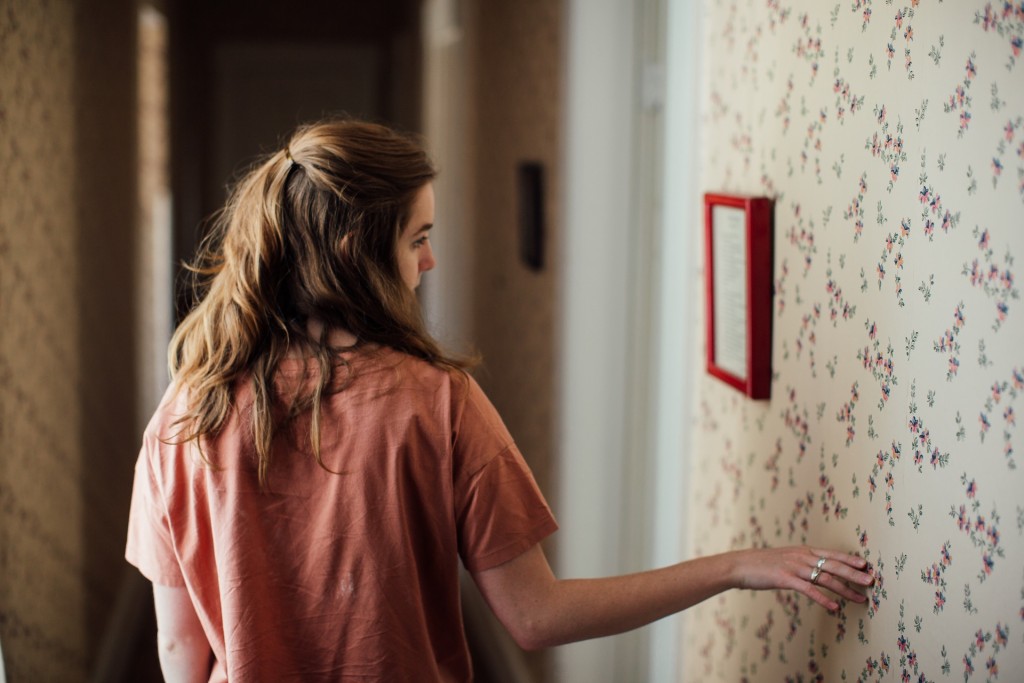Today’s article is written by regular contributor Christi Craig.
The summer I turned fifteen, my father came into possession of a used Vespa: shiny, red, and in excellent shape. It sat in the garage for weeks at first, and I imagined myself taking it out, sitting on the leather seat a few times with the kickstand locked in place.
My dad must have seen me out there. Maybe he hated to think of the Vespa idle in the garage while he was at work all day. Probably, he grew tired of my complaints about having little to do and no way to get there even if I did. So one day, he took me outside and said he was going to teach me to ride it.
I should have been elated, right? A chance at my own means of transportation. A Vespa, for crying out loud (though at fifteen, I had no idea just how cool that was). Instead, I watched him push it off the stand and roll it out of the garage, and saw the Vespa in a new light: a monster, red and heavy and able to eat me alive once I gave her some gas. I only weighed about eighty pounds, always stick thin and made mostly of air. When I registered the bulk of the machine, there was no way, I told my dad, I could ride that motorcycle.
My dad doesn’t give up easily. Once he has it in his head to do something, he gets it done. I’m very much like him, except in the opposite way: once I decide I won’t do something, I usually don’t. But, I gave it a good try.
I sat in front of him, and he talked me through several starts and stops. With his arms around me and hands next to mine on the handlebars, he showed me how to work the gas and clutch at the same time. We circled the cul-de-sac, and he put his foot down each time we about fell over (which was often). And, each time the Vespa leaned, weighted and unsteady, I said, “Dad, I can’t.”
It’s too big.
I’m too scared.
Finally, he said, “Listen. When it comes to riding motorcycles, a little fear is good. Those guys who get too cocky, think they know what they’re doing? Those are the guys who crash.”
Always wanting to impress my father, I tried again the next day, and maybe once more after that. But, I never got the Vespa out of the cul-de-sac. Not of my own accord. Whether I was too stubborn or too afraid, I don’t know. What I do know is that my father’s words stayed with me long after he sold the Vespa.
I recount that story, because I just sent 20 pages from the second draft of my novel to a fancy writing retreat to be read by someone who could have quite a bit of sway on the progress of this book. I would have loved to send 20 pages of a finished, well-critiqued, rewritten again and again manuscript, but there wasn’t time. News of the deadline came on short notice. So, the week before I sent it, then the day before, and the minute before I hit Enter, I was utterly and completely afraid. I had to remind myself of that Vespa and my father’s words. Fear at a time like this is normal and even beneficial.
Fear keeps my ego in check.
I don’t want to be some cocky guy who crashes and burns. If I’m not afraid, if I think, “Oooh, I’ve got this, I’ll just punch out a few pages of fancy prose, check the spelling—boom,” I’m likely not humble or open enough to hear when and where more work can be done, where I might improve my craft, so that the story reads stronger. I might reach the end of the road to publication, but I won’t be putting my best work in print.
Fear forces me to ask for help.
Julia Cameron talks about fear in her book The Artist’s Way:
Finding it hard to begin a project [or send a project] does not mean you will not be able to do it. It means you will need help—from your higher power, from supportive friends, and from yourself.
No good writing is ever done alone. Yet, many writers find it difficult to admit they need help. I’m not one of them, but I still break out in a sweat every time I sit down with my writing critique group, with whom I’ve been meeting for a while. I know they aren’t going to laugh at me or roll their eyes or quietly vote me out, but I worry they’ll see through me if I don’t at least feign confidence. Julia Cameron might say, Nonsense. All of us Creatives need help, and we’re better off when we accept that truth.
I didn’t have time to workshop these 20 pages like I wanted, but I did ask for help—for moral support. And, a good writing friend gave me exactly what I needed. “This isn’t a finished manuscript meeting,” she reminded me. “It’s a series of workshops.” My pages aren’t supposed to be near-perfect.
While her words didn’t necessarily lower my fright level, it did give me courage to hit Send when the time came.
My ‘fear’ is my substance, and probably the best part of me. ~ Franz Kafka
Often, I think of fear as all-consuming or this thing to be conquered, but I can choose to use it to my advantage, to keep me in check, to push me to do better. As a writer, I wouldn’t want it any other way.
What’s your perspective on fear?
